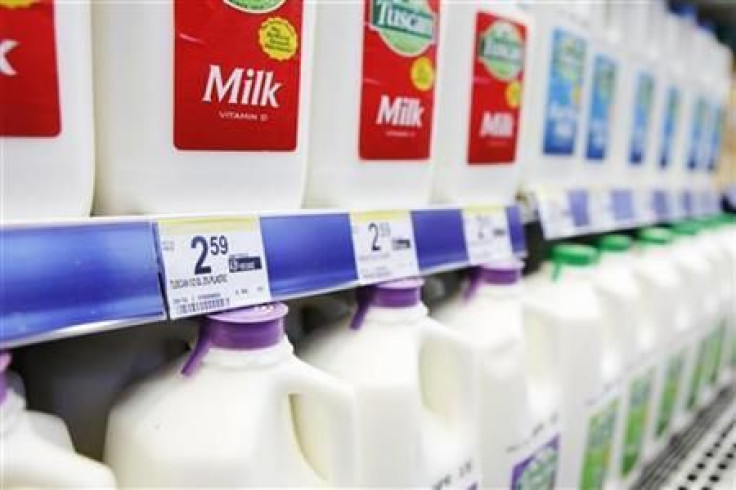11% Of Breast Milk Bought Online Contain Cow's Milk

Researchers discovered that cow’s milk can be found in 11 percent of breast milk samples purchased from online markets. The study, which was published online in Pediatrics on April 6, further notes that the amount of cow’s milk in the samples was significantly high and is thus a major indicator that it was all too intentional.
Sarah A. Keim, assistant professor of pediatrics, Nationwide Children's Hospital, Columbus, Ohio, and her colleagues said that cow’s milk may not be suitable for infants with intolerance or allergy. The team further wrote, "Because buyers cannot verify the composition of milk they purchase, all should be aware that it might be adulterated with cow's milk. Pediatricians should be aware of the for human milk and the potential risks."
The study involved testing 102 breast milk samples for bovine and human DNA through mitochondrial DNA testing. The team also investigated on the ratio of cow’s milk in each breast milk sample by the aid of control mixtures developed in the laboratory.
The research yielded the following results: 11 out of 102 breast milk samples contain both human and cow DNA, and 10 of 11 of these were contaminated with bovine DNA. This means that contaminated breast milk samples necessitated the infusion of approximately 10 percent of cow’s milk, which waves a significant flag of concern.
Online sellers make great profit from these cyber breast milk markets. This is why deceitful sellers have the tendency to augment the samples by adding cow’s milk and other milk formulas other than breast milk. "Our findings confirm the previously theoretical risk that human milk being sold via the Internet may not be 100% human milk. Because buyers have little means to verify the composition of the milk they receive, all should be aware of the possibility that it may be adulterated," the research team concludes.
Dr Keim previously noted that 74 percent of breast milk samples purchased over the Internet were contaminated with disease-causing pathogens, such as bacteria, which may be harmful in infants. The research group also previously reported that 21 percent of online breast milk buyers intend to give the milk to infants with medical conditions, of whom 16 percent are formula-intolerant.
The boom of this new practice is probably a reflection of how parents handle their child’s nutrition. Some parents do not want to feed their child with formula milk, whilst others simply do not have have the time and the ability to produce enough milk as much as they want to. While nonprofit milk banks, such as the ones regulated by the Human Milk Banking Association of North American, have breast milk donors that don’t have the full capacity to provide for all infants, particularly those who were born preterm, and/or very sick. Furthermore, parents of well-baby children do not have access to the milk banks at all.
To contact the writer, email rinadoctor00@gmail.com






